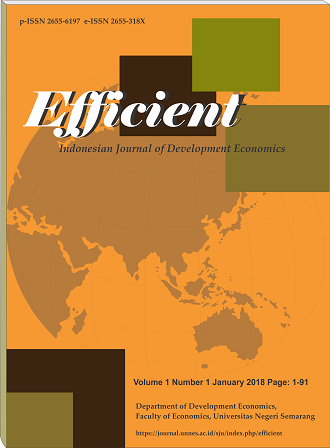The Identifying Factors Affecting Energy Transition Efforts in Indonesia
Abstract
Energy transition towards the use of clean energy is a process that has the goal of reducing the consumption of non-renewable energy towards the consumption of renewable energy that is environmentally friendly. Energy transition efforts are carried out for several reasons, including as a form of implementation of international agreements and overcoming the problem of climate change. This study aims to determine the effect of education, per capita income, foreign direct investment (FDI), and population on the consumption of renewable energy in Indonesia. The data for this research was obtained from the World Bank and Our World in Data. The analysis used in this study is by using the Error Correction Model (ECM) method. The results showed that the variables of education and population had a positive effect in the long term. The results show that in the long term an increase in per capita income has a negative impact. This result also explains the positive impact of FDI which proves the occurrence of FDI Hallo Effect in Indonesia.






